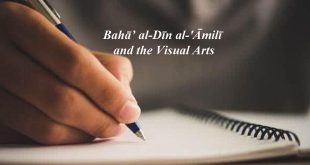Scholars invited to contribute chapters towards a forthcoming edited volume titled “From Oriens Christianus to the Islamic Near East: Theological, Historical and Cultural Cross-pollination in the Eastern Mediterranean of Late Antiquity” to be published under Gorgias Press’ Classical & Late Antiquity Series (CLA).
The volume seeks to shed new light on the crossroads at which the Late Antique world of the Eastern Mediterranean heralded diverse exchanges between Oriental Christendom, Byzantine culture and the Islamic world.
The title of the edited volume is:
From Oriens Christianus to the Islamic Near East: Theological, Historical and Cultural Cross-pollination in the Eastern Mediterranean of Late Antiquity.
The volume seeks to shed new light on the crossroads at which the Late Antique world of the Eastern Mediterranean heralded diverse exchanges between Oriental Christendom, Byzantine culture and the Islamic world. Further, how these exchanges impacted the development of diverse regions, cultures, languages, and religions. The volume will provide an inter-disciplinary overview of the various perspectives emerging from the Christian Oriental, Byzantine, Early Islamic and Archaeological approaches to this area of research. The key objective of the volume is to explore the possibilities of a unified and holistic approach to understanding the “Sattelzeit” (R. Koselleck) – i.e. the period between 500 and 750 CE. While the scope of the volume has been intentionally left broad, the editors are particularly interested in chapters that deal with the following areas:
- The role of Eastern/Oriental Christians in the relationship(s) formed between the Islamic Caliphate and the Byzantine Empire.
- Scripture and Arts as a medium of interchange between Christians and Muslims.
- The historical narratives and administrative reality of the expansion of the Islamic Empire.
A number of chapters have already been agreed and so new submissions should complement the following existing chapters:
Introduction
Professor Dr Johannes Niehoff-Panagiotidis
Chair of Byzantine Studies at the Institute for Greek and Latin Philology, Freie Universität Berlin
The Sophistication of Arguments in Theodore Abū Qurra’s Dialogues with Muslims by Professor Dr Reinhold F. Glei, Ruhr-Universität Bochum
Theology as History in the Heresiology of John of Damascus by Professor Dr Peter Schadler, Dickinson College
Early Shiʿism as a Late Antique Religiosity: Some Preliminary Remarks by Dr Ahab Bdaiwi, Leiden University
The Practice of Empire: The View from Khurāsān by Mr Ahmad Khan, Universität Hamburg
Confronting Ambiguity: Scripture and the Emergence of Self-Definition Under Early Islam by Professor Dr Aaron Hughes, University of Rochester
Who Wrote the last Greek Documents in Islamic Egypt? by Dr Lajos Berkes, Humboldt Universität zu Berlin
“Whose Qurʾān? – the Role of Oriens Christianus for Understanding the Islamic Near East” by Mr Manolis Ulbricht, Freie Universität Berlin
A Tale of Two Conquests: A Local Historian’s View of Islamic Conquest and Byzantine Reconquest Along the Northern Mesopotamian Frontier by Dr Harry Munt, University of York
The End of Muʿāwiyah’s Reign and that of the Whole World: Retrospective Overview of John Bar Penkāyē by Ms Yulia Furman, Russian State University for the Humanities
The Portrayal of Heraclius and Bāhān in al-Azdī’s Kitāb Futūḥ al-Shām by Mr Adam Walker, Radboud University
The deadline for abstracts (max. 500 words) is 15th June 2018 and completed chapters submitted by 15th December 2018. Chapters should be 4,000-6,000 words in length. All abstracts should be sent to Manolis Ulbricht: manolis.ulbricht@fu-berlin.de.
 Ijtihad Network Being Wise and Faithful Muslim in the Contemporary World
Ijtihad Network Being Wise and Faithful Muslim in the Contemporary World
